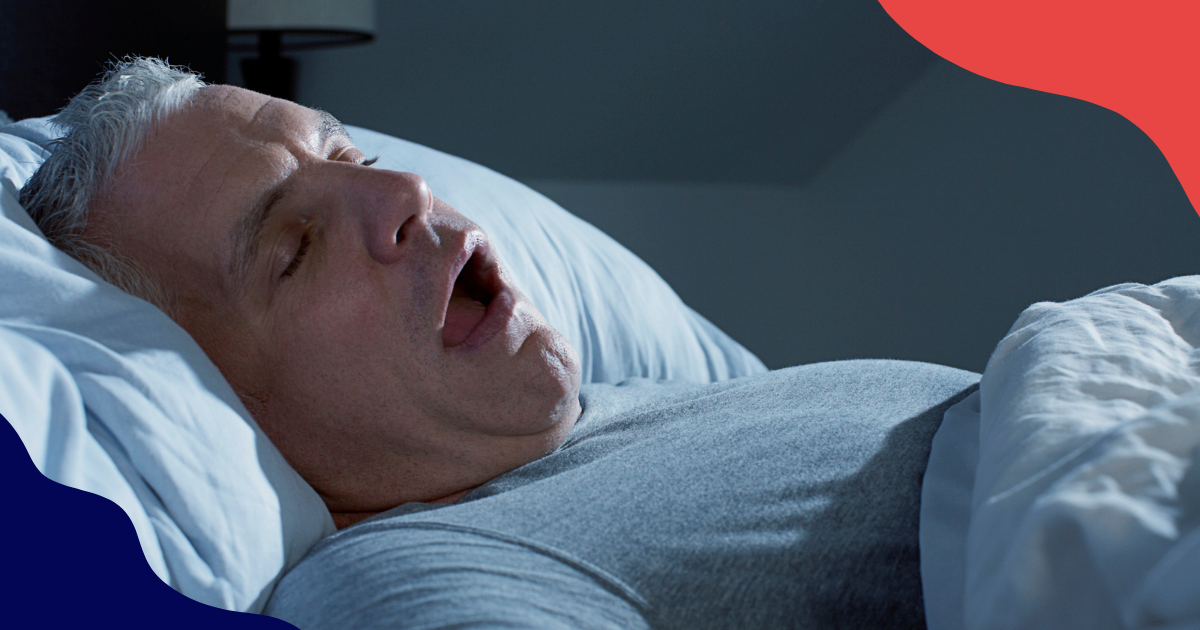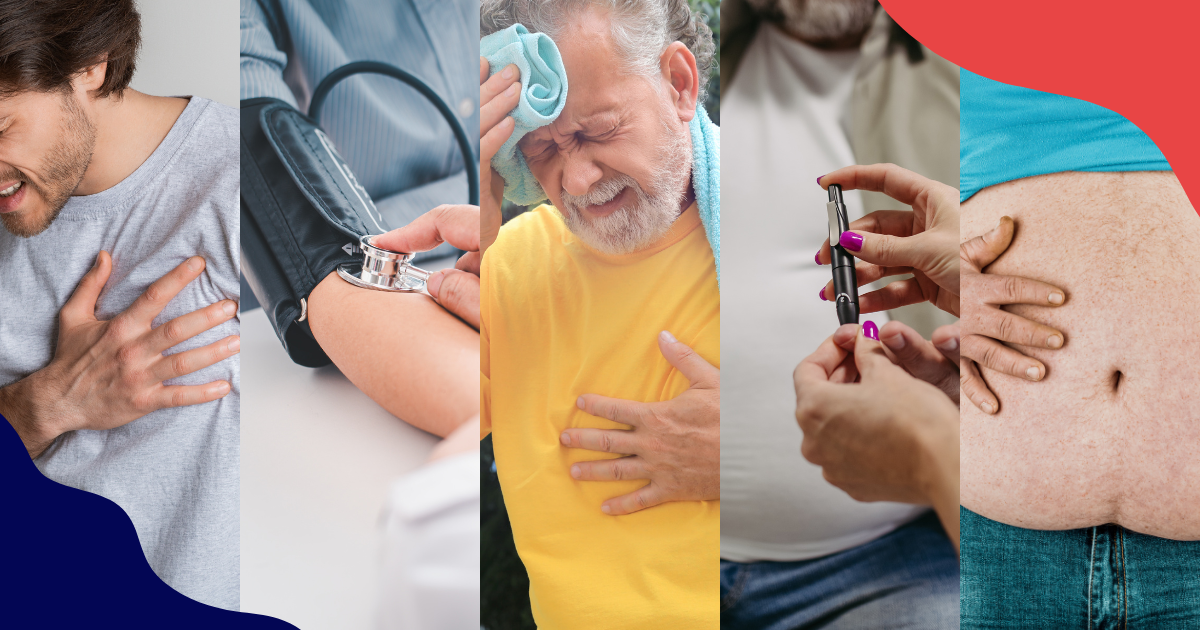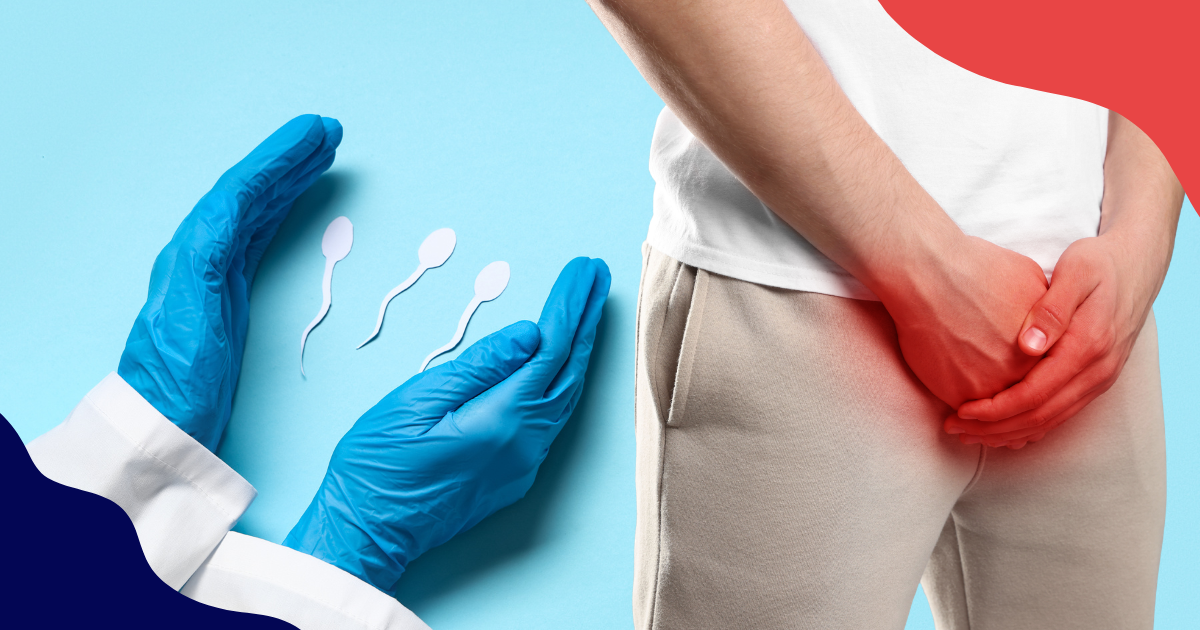Masturbation is a natural way to attain pleasure. However, when it’s causing issues in your personal life, it’s time to step back and assess if it has become dysfunctional for you. This article explores ‘masturbation addiction’ and what to do if you suspect you’re struggling with it.
Is Masturbation Addiction Real?
There’s a lot of confusion around masturbation, so it makes sense to wonder if masturbation addiction is even legitimate. Masturbation addiction is not a psychiatric diagnosis as it’s not listed in the Diagnostic and Statistical Manual of Mental Disorders (DSM-5). However, the experience of it is real. There are a lot of men who come to us reporting that they masturbate to the point that it’s starting to cause problems in their relationship. When your masturbation has reached that point, it can be called a masturbation addiction or, to be more accurate, compulsive masturbation.
Signs of Masturbation Addiction
Masturbation addiction does not work the same way as your usual DSM-5 addictions. While there may be a psychological dependence, there may be no physical withdrawal symptoms that manifest when quitting the source of ‘addiction.’ Though, some addiction clinics assert that withdrawal does happen. But it shares some signs with the symptoms of other addictions, which are:
- Masturbation consumes a lot of your energy and time to the point of disrupting your daily routines
- Masturbation affects your social life by making you cancel appointments with friends or even your own partner
- Masturbation is done even in work settings or in public places despite the risks
- Masturbation impulse remains strong even if the individual is not actively sexually aroused
- Masturbation is always the default response after experiencing stressors or negative emotions
- Masturbation makes you feel immense feelings of guilt, yet you still can’t stop
- Masturbation is all you think about even as you are engaged in other activities
Causes of Masturbation Addiction
Half of the equation when it comes to solving masturbation addiction is figuring out what caused it and resolving the triggers. Here are some of the factors that lead to uncontrolled masturbation:
- Stress – chronic stress is often the culprit of masturbation addiction. What starts as a way to cope with stress eventually becomes excessive because of the increase in intensity and frequency of stress. While most people have healthy masturbation, those that develop a compulsion would have to urgently address their stress issues.
- Mental Disorders – another primary cause of compulsive masturbation are psychiatric conditions like mood disorders and obsessive-compulsive disorder (OCD). Some say that masturbation addiction falls under compulsive sexual behaviour. However, we will be using the term masturbation addiction to discuss excessive masturbation specifically.
- Sexual Dysfunctions – when men struggle with sexual dysfunctions, they often struggle with partnered sex. Either they get a negative reaction from their partner or fear the possible stigma, so they resort to masturbating only. The solution here is to treat sexual dysfunction (especially difficulty getting hard as it’s often a precursor to chronic diseases).
- Relationship Issues – when men are in a relationship with constant conflicts, a dead bedroom is often a complication. To try to meet their sexual needs and regulate the negative emotions caused by the relationship problems, they turn to masturbation. Long-term issues heighten the risk of masturbation addiction.
- Predisposition to Addiction – some research studies have shown that those with compulsive tendencies also have the same activated neural circuits triggered by psychoactive substances that cause addiction. Furthermore, those with a family history of any kind of addiction have a higher risk of developing impulse control issues.
- Sexual Abuse – traumatic sexual experiences can lead to excessive masturbation as shown in studies of child sexual abuse. Victims can develop an unhealthy relationship with sexuality in general or turn to masturbation because of anxiety or fears around partnered sex. Therapy focused on addressing trauma is critical for lasting recovery.
Side Effects of Frequent Masturbation
Masturbating too often can lead to unintended physical, mental, and social consequences. Here are some of the things to watch out for if you are struggling with compulsive masturbation:
- Swelling – if you’re masturbating with short intervals in between, you might not be giving your penis enough time to recover. You may feel pain but also experience swelling due to inflammation and irritation from frequent or aggressive friction to the skin. This usually resolves on its own. If it doesn’t, please consult a doctor.
- Chafing – another side effect of constant skin friction due to masturbation is chafing. Chafing occurs when there’s redness, flaking, and peeling on the skin of the penis. Lubrication may help but it can also cause irritants that can trigger chafing. Even tight clothing can cause chafing so make sure to wear breathable underwear.
- Peyronie’s Disease – men who masturbate excessively tend to have poor control so they can also be rubbing it too hard. In rare cases, they can injure their own penis and acquire Peyronie’s disease, which is caused by fibrous scar tissue. This can also cause the penis to look bent, leading to painful sex and ED.
- Erectile Dysfunction – sometimes, erectile dysfunction (ED) is the cause of masturbation addiction. Other times, it’s an indirect complication. Frequently masturbating can cause a man to become less sensitive to the usual stimulation and so they struggle to get hard during ‘regular sex.’ This can be rehabilitated with the right treatment combined with therapy.
- Premature Ejaculation – premature ejaculation (PE) can also be an indirect consequence of masturbation addiction. A man may accidentally train their bodies to be more sensitive to stimulation and climax faster than with partnered sex. The good news is that you can reverse this by training the penis to ‘endure’ by delaying climax. You can also reach out to experts for professional treatment.
- Guilt – excessive masturbation can cause men to neglect other important aspects of their life, which may make them feel bad. And because the masturbation is out of control, its negative effects will also be happening frequently, which would trigger another round of guilt. Fortunately, this lessens when a man starts working on their masturbation issues.
- Low self-esteem – masturbation addiction can also indirectly lead to reduced self-confidence because of how isolating the condition is. Its detrimental impact on relationships and the sense of being ‘out of control’ can cause men to lose trust in themselves. Therapy should be able to help in curbing compulsive masturbation and rebuilding self-esteem.
- Strained relationships – uncontrolled masturbation can cause men to neglect the people around them. The first to be affected is often their own partner, since a man may no longer feel up to doing partnered sex or just be fatigued in general to do any activity together. In extreme cases, it can also cause men to withdraw from friends and family.

How to Recover from Masturbation Addiction
There’s no one-size-fits-all approach to ending masturbation addiction. However, there are a few common actions taken by those who have successfully managed their impulses to masturbate. Here are some steps you can take to regulate your masturbation:
Reasons and Rewards
Making any kind of change is difficult. When you want to overturn or start a habit and you try to force it, your mind will perceive the act as akin to a punishment. In short, your brain is more likely to avoid it. To prevent this, you must first identify WHY you want to quit. Ground yourself in PURPOSE connected to your identity or who you want to be. Then, set up a reward system. Feel free to ‘gamify’ the process to make it even lighter.
Therapy
Poor mental health is often the cause of excessive masturbation. No individual would masturbate to the point of ruining their career or relationships if there isn’t anything wrong with their life that is deteriorating their mental state. It’s recommended to speak to a psychologist ASAP. Alternatively, one can also consult with sex therapists who are more focused on sexual issues.
Medications
Individuals who struggle with masturbation often have an underlying mental disorder like depression and anxiety. One way to manage these conditions is through prescriptions. For example, if the trigger for masturbation addiction was to increase the supply of feel-good hormones, antidepressants like Selective Serotonin Reuptake Inhibitors (SSRIs) would reduce the need for it.
Dopaminergic Alternatives
One of the hormones that get stimulated by masturbation is dopamine, the reward hormone. This means substituting masturbation with another high-dopamine activity will help lessen its frequency. Often, substituting is much easier on the mind than going cold turkey. Gaming is an example of a less harmful alternative to masturbation (but be careful as it can also cause an addiction-like state).
Masturbation Limitations
Rather than suddenly quitting masturbation, it’s better to regulate it instead. Set rules for yourself. For example, put a rule that you can only do it once a day or after you’ve finished working. You can also put hard limits like no masturbating anywhere else but home. If you’re in a romantic relationship, you can add avoiding masturbation for the rest of the day if you’ve already engaged in partnered sex.
Porn Usage Reduction
Porn consumption is prevalent among those who masturbate. Avoiding watching porn while masturbating may help lessen its appeal. Also, porn tends to show unrealistic sexual experiences, which may make men lose interest in partnered sex. This means that cutting off porn can also improve sexual activities with a partner.
Support Groups
Change is easier to enact when you don’t feel like you’re carrying the burden by yourself. This is why support groups are a critical part of addiction interventions. Support groups can offer a safe space to speak about any struggles you are experiencing with your recovery. They also provide encouragement that helps during the toughest phases of the journey.
Stress Management
Stress is one of the reasons people masturbate in general. Getting your stress levels under control by using relaxation techniques like yoga, meditation, and deep breathing may prevent the urge to masturbate. You can also eliminate or pivot away from situations that cause severe stress. For example, if you are in a toxic situation, meditation can only take you so far. You need to get out of it.
Conclusion
Don’t get us wrong. Masturbation has a lot of benefits and there is no fixed number that is considered normal. But when it starts affecting you negatively, that is when the line has to be drawn. If you’re struggling with masturbation addiction and sexual dysfunction, book an appointment with us. We’ll help treat both with our high-quality comprehensive treatments!




